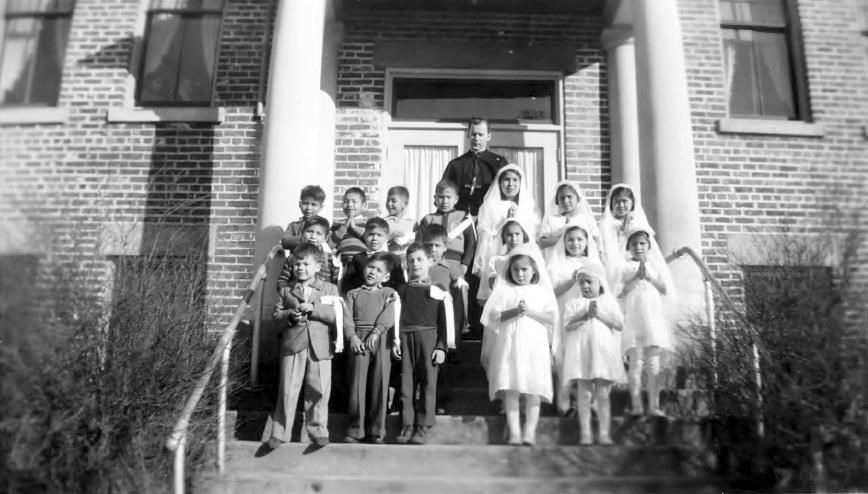Less than a week before the first National Day for Truth and Reconciliation, the Federal Court of Canada approved a settlement agreement for former day scholars of Indian Residential Schools.
On Sept. 24, the terms of the settlement, including compensation of $10,000 for individuals, were approved following a class action lawsuit against the federal government, led by Tk'emlúps te Secwépemc and shíshálh First Nations.
The settlement agreement was announced on June 9 and also includes a $50-million Day Scholars Revitalization Fund to support healing, and linguistic and cultural reclamation for day scholars and their descendants.
Former students who attended residential schools during the day but were able to return home for the night weren’t included in the 2006 settlement. The new settlement agreement applies to the Survivor and Descendent Class Members in the Gottfriedson Indian Residential Schools Day Scholar class action, under which all former day scholars who were alive as of May 30, 2005 are eligible to apply to receive $10,000 in compensation for the harms they experienced, including psychological harms, and loss of language and culture. Families or estates are able to apply on behalf of those who have died since May 30, 2005.
In a statement from shíshálh Nation, hiwus Garry Feschuk said, “This settlement will ensure compensation for Survivors and their Descendants will happen in their lifetimes. Once we are ready to proceed with compensation, there will be a simple claims process. This was designed to minimize the burden on Day Scholars and their Descendants.”
A settlement notice will include more information about the application process and the start date for making claims. Claimants will be able to apply by filling out a form, and will not need to provide any information about their experiences at residential schools, according to a statement from shíshálh Nation.
A 60-day appeal period is still active.
“The mistreatment of Indigenous children is a tragic and shameful part of Canada’s history, the impacts of which are still being felt today,” Crown-Indigenous Relations Minister Carolyn Bennett said in a statement on Oct. 1. “The Government of Canada is deeply committed to advancing reconciliation and healing for former Indian Residential School Day Scholars and their descendants.
“The Court ruled that the agreement is fair, reasonable and in the best interests of the Survivor and Descendant class members.”
According to federal documents, a day school and residential school operated on shíshálh Nation lands between 1904 and 1975.
“We were told by our members who were Day Scholars that they too suffered from the punishments for speaking our language and exercising our culture while in the schools during the day,” shíshálh Coun. Selina August said in a joint statement with Jeanette Jules of Tk’emlúps te Secwépemc First Nation. “It was horrific and our Day Scholars were once again left out just as their suffering had been ignored in the Residential School settlement. We now have ensured that all the Day Scholars who were alive as of May 30, 2005 will be compensated for their ‘Common Experience Payment’ and so nobody is left behind.”
Feschuk and former Tk’emlúps te Secwépemc First Nation chief Shane Gottfriendson initiated the action more than a decade ago.
The class action lawsuit was certified in 2015, and involves more than 100 First Nations. In 2020, the parties agreed to separate out the Band Class in order to not delay compensation to survivors any further.
A lawsuit by First Nations seeking reparations from the federal government for the impact residential schools had on them will continue to trial at a later date.
“The advocacy, perseverance and commitment of former Indian Residential Schools Day Scholars to address past wrongs will not be forgotten," Bennett said.
Help and support for survivors and their families can be found through the Hope for Wellness Help Line at 1-855-242-3310 or hopeforwellness.ca. A crisis line is also available through Indian Residential School Survivors and Family at 1-866-925-4419.



